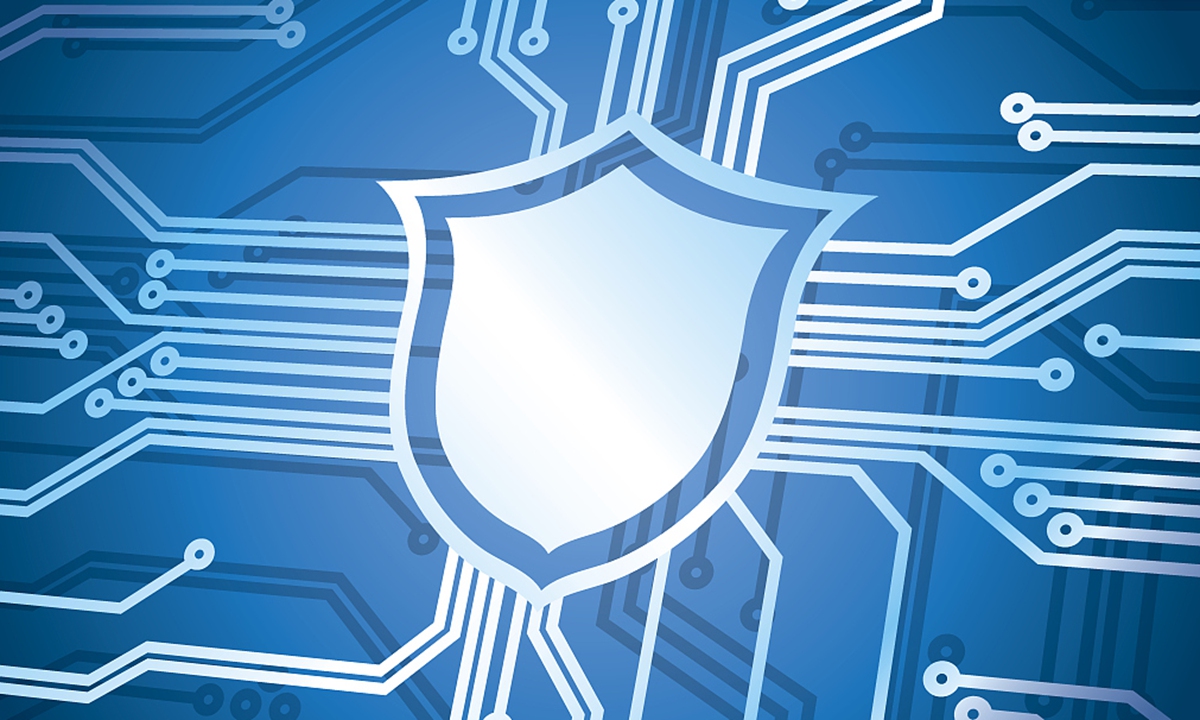Nuclear deterrence needed to prevent cyberattacks from paralyzing China's nuclear response
By Qin An Source: Global Times Published: 2020/8/24 14:42:17

Photo: VCG
The US' maximum pressure campaign against China now has extended to cyberspace. After the Trump administration's ban of TikTok and the Clean Network program that aims at Chinese companies, news on Sunday said that TikTok plans to sue the Trump administration over its executive order banning the app. As the game goes viral, there are concerns about whether the US will launch a cyberattack against China. Will China and the US actually cut off the network connection between them?
Such concerns do not come from nowhere. In 2019 alone, there were three major cyberattacks related to the US. In March 2019, Venezuela's national power grid collapsed. The country's president denounced the attack as a well planned cyberattack by the US. This indicates that cyberwarfare has become a new mode of undeclared warfare - an invisible invasion of sorts.
In June 2019, Trump announced retaliation against Iran with a cyberattack too. This showed that cyberwarfare has moved from the backstage to the front lines, from covert warfare to a declaration of war, and from auxiliary fighting to mainstream combat.
On November 4, 2019, the US invited a number of countries to hold the first ever joint cyberattack and defense exercise with the island of Taiwan. It undertook cyberattack scenarios as a new approach to go beyond beach landings and targeting financial systems. It focused on persistent and chaotic destructive attacks on key infrastructure and economic systems. This indicates that the US has crossed the bottom line of the one-China principle in cyberspace.
From late June to mid-July this year, some "mysterious explosions" occurred in Iran's strategic facilities causing more than 100 casualties at power plants, nuclear facilities, chemical plants and ammunition depots. Cyber sabotage from Israel and the US were believed to be involved.
This series of actions and events show that the US has not only the ability to paralyze a society through cyberattacks but also the proven will to do so. Will the US use this ability against China? It's completely possible. But the two countries might not disconnect their network.
Although US Secretary of State Mike Pompeo has listed the "clean networks," the US' are the ones who are the most unclean. At present, the Chinese enterprises subject to unilateral sanctions by the US are innocent, and their technologies and products are safe as well. The US is fully aware of this. Besides for the US, disconnecting the network with China will actually cut off the easy path to attack China.
However, China must consider how to deal with "disconnection" and take primary precautions mainly in three aspects.
First, it must strengthen the awareness of network crisis. With the advent of the internet age, the international structure is experiencing subversive changes. Sovereign states have entered into an era of "stabilizing and governing with big data." The network's characteristics have increasingly made this concept more prominent: The internet can be used to kill people and overthrow a country.
Second, we must optimize the power structure. Cyberspace has become the fifth dimensional battlefield besides land, sea, sky and space. Although ordinary users form the frontline of defense in cyberspace, cyberwarfare cannot mainly rely on "militia." The sustainable development of a "regular cyber army" has become an important option for the construction of a country powerful in cyberspace.
Third, cyber deterrence needs to be showcased. China not only needs to be capable of launching counterattacks in cyberspace, but also must consider special situations in which other countries' cyberattacks might affect our ability of a nuclear counterattack. We must keep nuclear deterrence to the cyberattacks that aim to paralyze our network.
Russia's latest updated nuclear deterrence strategy lists four conditions that would trigger its implementation of nuclear strikes. In one situation, if the attack undermines its nuclear force response actions, Russia would contemplate using nuclear weapons. Cyberattacks may lead to such situation, therefore Russia's nuclear deterrence takes cyberattacks into consideration.
The author is head of the Beijing-based Institute of China Cyberspace Strategy. opinion@globaltimes.com.cn
Posted in: VIEWPOINT